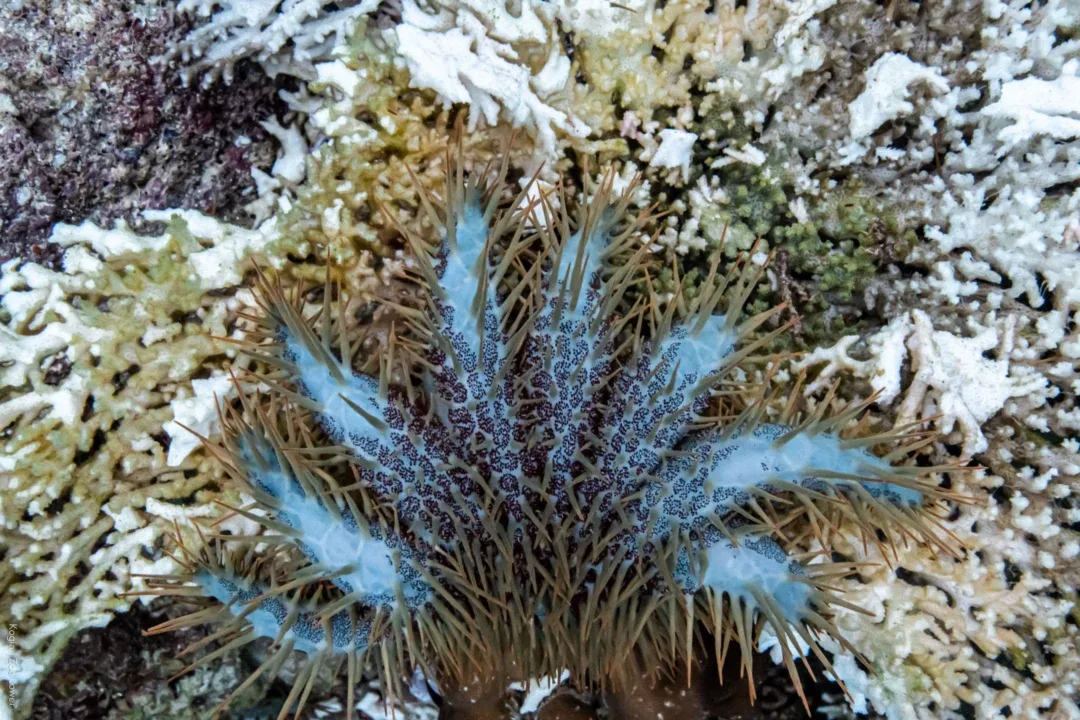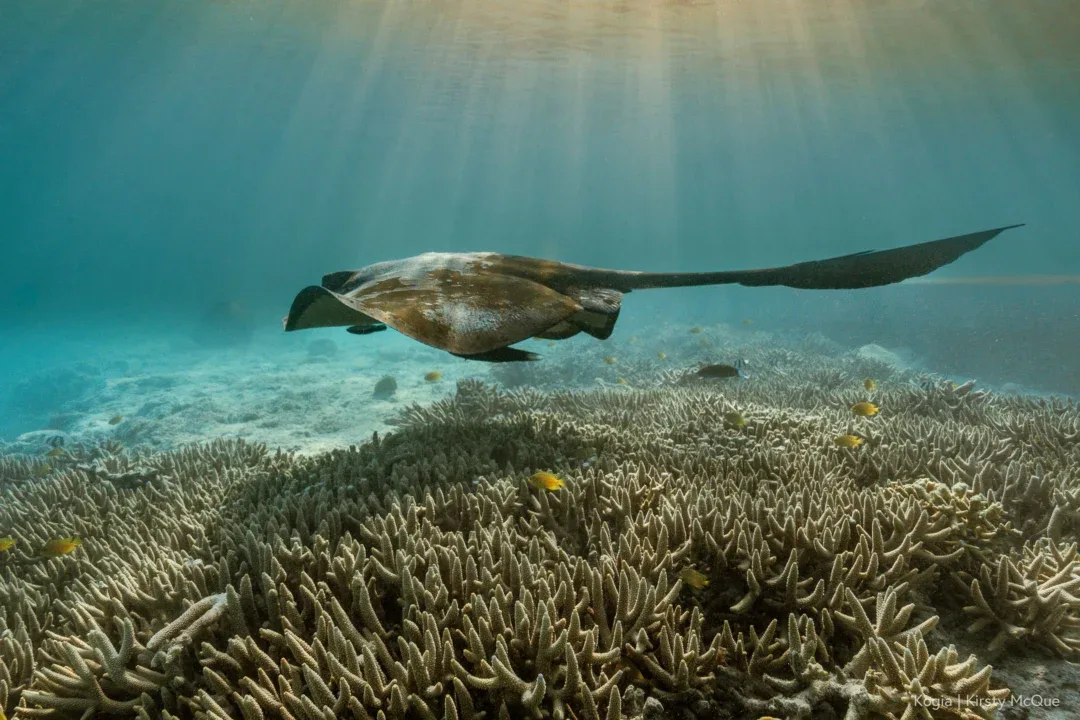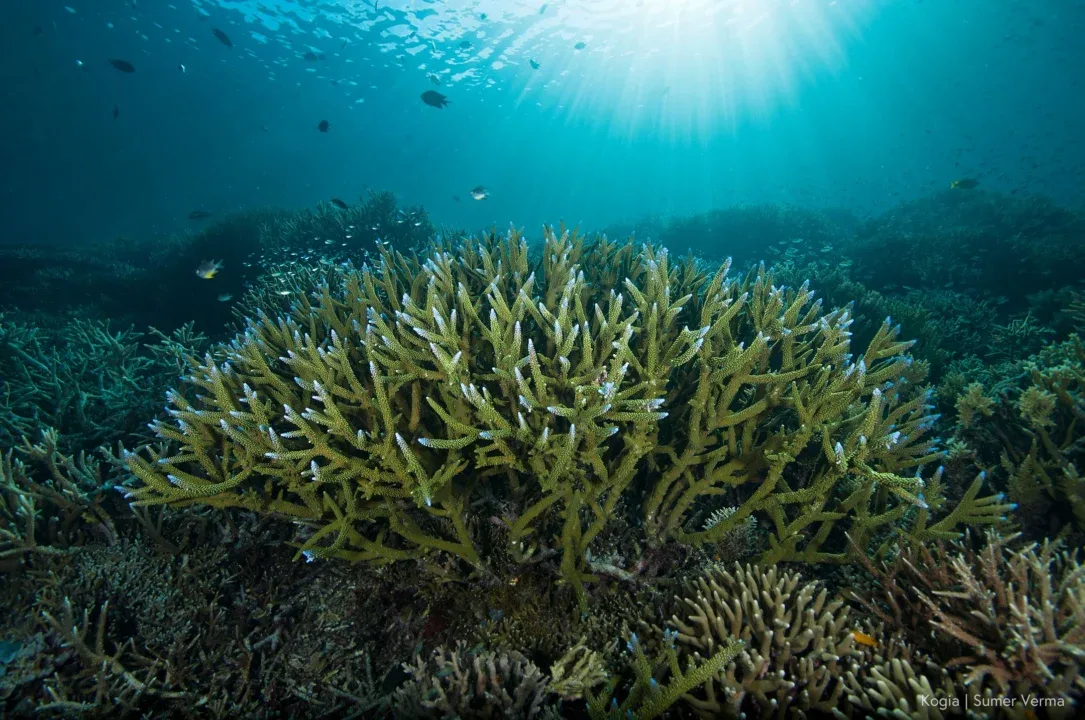ICRI Founding Member Australia, has released a report from the Reef Authority which concluded that the overall outlook for the Great Barrier Reef remains one of future deterioration. This is despite some habitats and species improving over the past five years thanks to windows of low disturbance and decades of protection and management.
The 2024 Great Barrier Reef Outlook Report is the fourth in a series of comprehensive five-yearly reports on the Reef’s health, pressures, management, and potential future. It found climate-driven threats such as warming oceans and severe cyclones have been compounding other impacts from crown-of-thorns starfish outbreaks, poor water quality and some fishing activities.
Some ecosystems, such as coral habitats and seagrass meadows, have improved over the reporting period, indicating the Reef retains natural resilience. However, the Reef’s capacity to tolerate and recover will be compromised by a rapidly changing climate.
World-leading management initiatives such as work to control the coral-eating crown-of-thorns starfish and increased ranger patrols to ensure people are doing the right thing, are helping protect biodiversity and supporting the Reef’s resilience.

Reef Authority CEO Josh Thomas said the Great Barrier Reef was a vast and spectacular ecosystem and one of the most complex natural systems on Earth.
“It’s intrinsic beauty, spectacular biodiversity and heritage values endure and underpin significant social, cultural and economic benefits for Australia,” Mr Thomas said.
“However, ecosystems across the world are facing urgent and present threats from a warming climate. Global, national, and local action to reduce greenhouse gas emissions is vital.”
“We will continue to work with Traditional Owners, partners, and communities to build ecosystem resilience to support the Reef’s future. The Reef Authority’s Great Barrier Reef Blueprint for Climate Resilience and Adaptation (Reef Blueprint 2030) describes key actions we are taking and those needed to address the challenge of climate change impacts on the Reef.”
Reef Authority Chief Scientist Dr Roger Beeden said research showed that management actions such as the crown-of-thorns starfish control program were having measurable and positive impacts on Reef health, boosting its resilience and capacity to recover from major disturbances.
“The research and assessments in the Outlook Report help us understand where the greatest challenges to the Reef’s resilience lie,” Dr Beeden said.
“The Outlook Report is independently reviewed and includes the best-available science and data from research institutions, Australian and Queensland government agencies, and industry. Its findings will help shape the actions these sectors take in the future to protect the Reef.”

The Report found the Great Barrier Reef Region continues to be well-managed overall, noting the enhanced investment by the Australian and Queensland governments through the Reef 2050 Long Term Sustainability Plan, which is delivering significant reforms in fisheries, marine park management, and for climate adaptation solutions.
The 2024 Outlook Report does not include details of the 2023-24 summer’s mass coral bleaching event. The Reef Authority will provide updates on the impacts of this event as the results from several monitoring programs become available over the next 12 months.
Key findings include:
- The Great Barrier Reef is a vast and spectacular ecosystem and one of the most complex natural systems on Earth. Its natural beauty, amazing biodiversity and heritage values endure and underpin significant social, cultural, and economic benefits for Australia.
- The current condition of coral reef habitats (for the period ending December 2023) across the Great Barrier Reef has improved.
- While the property’s outstanding universal value as a World Heritage Area remains whole and intact, its integrity continues to be challenged.
- Relatively few intense disturbances occurred over the period, enabling significant recovery of fast-growing corals on many reefs. Mid- and offshore reefs have fared better than inshore reefs.
- The resilience of social and Indigenous heritage values is underpinned by a healthy ecosystem and the strength of the connections people have with each other and the Reef.
- The tourism industry has shown great resilience in the face of the COVID-19 pandemic and has created new partnerships that enhanced stewardship of the Reef.
- Just as every increment of global warming will compound impacts, every effective action taken now contributes to a more positive long-term outlook.
- A number of habitats remain in good to very good condition overall, including mangroves and islands.
- The sheer size of the Reef, in combination with legislation, local management actions and Reef stewardship, is a protective feature against broadscale declines in ecosystem.
- The condition of seagrass meadows has improved, reflecting recovery from past flooding impacts in some areas. Seagrass abundance either improved or remained stable in around 60 per cent of the sites monitored between 2020 and 2023.
- Humpback whale populations have continued to recover.
- Seabirds, sharks and rays, and sea snakes, remain in poor condition.
- Marine turtles are in poor condition, and population declines are reported in most species other than southern green turtles and eastern Queensland flatbacks.
Source: Reef Authority News Article

